
Newborn kittens are entirely helpless and rely on their mothers for everything, including feeding, protection, and getting around. We’ve all seen kittens being carried around by their mothers, but when do they actually start walking on their own?
While newborns are capable of moving around from the get-go, they don’t start taking their first steps until they are about 3 weeks old and are walking, albeit wobbly, by the time that they are about 4 weeks of age.
Here, we look at the early stages of the first 6 weeks of a kitten’s life. This is a crucial time, and the developments that kittens go through at this time are fascinating. This all eventually leads to the kitten’s personality and temperament as an adult.
Kitten Walking Stages in the First 6 Weeks
The First Week
Kittens are all born with their eyes closed and will spend most of their time feeding and sleeping (and growing) — they usually double their birth weight during their first week.
They listen and take in the sounds around them, particularly the cries of their siblings and their mothers, which helps guide them where to go.
While they are not walking at this time, they use their little paws and legs to push themselves around. They can only manage short distances, and this kind of dragging/pushing stage generally lasts for about 2 to 3 weeks.
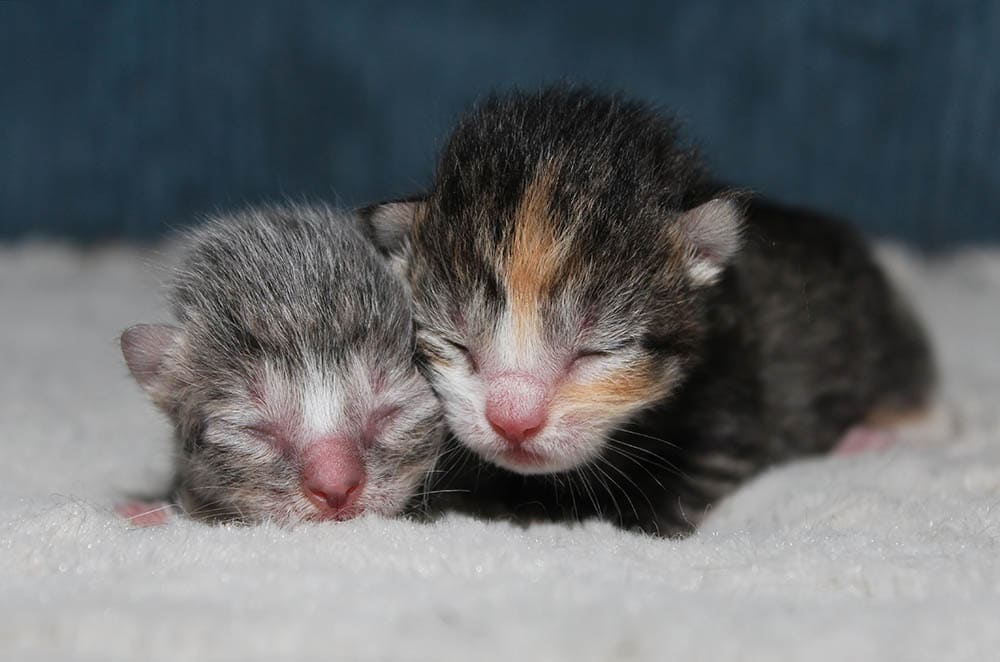
The Second Week
Kittens continue to grow and develop in their second week. They gain about 10 grams every day, and you can expect their eyes to open by the time that they are approximately 10 days old.
Their eyes will remain blue, and things will appear quite blurry to them initially. Their sense of smell starts to develop at this point, though. The dragging around continues into this second week.
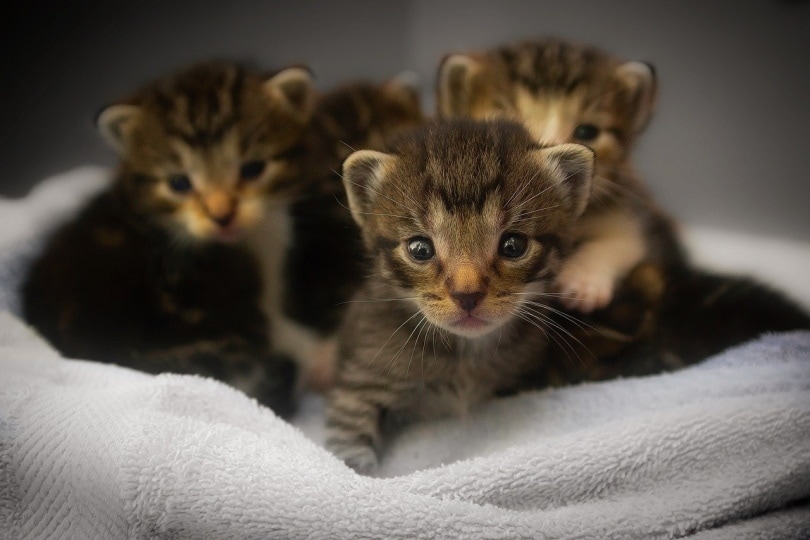
The Third Week
Many changes occur in the kitten’s third week. They can hear well, they can eliminate on their own more appropriately at this point, and they become more social. They also start to develop their baby teeth by 3 weeks (permanent teeth come in around 3–4 months).
The third week is also when they begin to take their first official steps. They are building strength and can start standing for brief periods and take a few steps at a time.

The Fourth Week
Kittens at 1 month have a fuller depth perception and sense of smell, and they might weigh around 1 pound. They also start to develop socially at this time through playing and interacting with their siblings. This is also when they will begin to form bonds with their littermates.
The fourth week is when they become stronger walkers (although still wobbling and stumbling) and can walk longer distances.

The Fifth Week
Kittens at 5 weeks will start to be introduced to kitten food and the litter box. This is when you’ll begin to see the kittens starting to run around more. Plenty of activity will be going on, and you’ll find them being quite busy playing with their littermates and trying to catch their mother’s tail!
This is also when you’ll need to keep them confined to an area for their own safety. All this running, playing, and exploring can lead them into mischief!
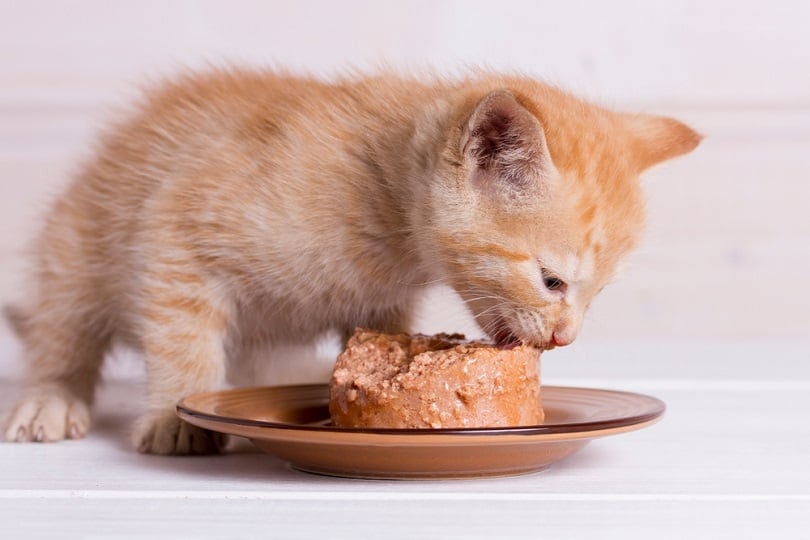
The Sixth Week
Socializing is super important at this stage, and they should be socialized with humans and any other animals in the household as much as possible. They learn from their mothers for this, but they’ll spend most of their time pouncing, leaping, running, and entertaining themselves at this point.
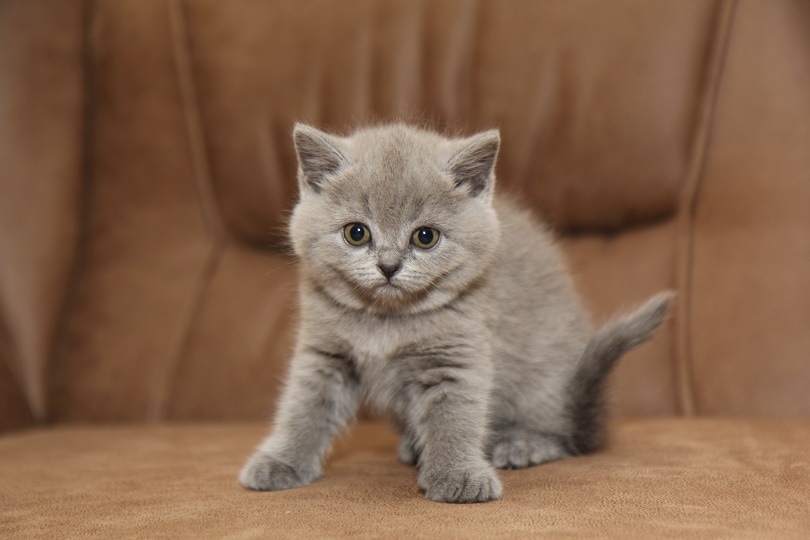
When Should a Kitten Go Home With You?
If you’re thinking about adopting a brand-new kitten or have a bunch that you need to find homes for, it’s a good idea to keep in mind what the right age is for a kitten to leave their mother and littermates.
Kittens naturally wean from their mothers by around 8 to 10 weeks of age and are usually ready to be separated from them by 12 to 14 weeks of age.
Kittens that are removed from their mothers younger than this will run the risk of developing health and behavioral problems as they mature.
Kittens need to be able to use the litterbox, run, walk, eat, and play on their own before leaving their mothers and littermates. They should be fully weaned too.
Kittens that are taken away at 5 weeks or younger are unlikely to learn the right social and life skills and might become more aggressive cats into their adulthood.
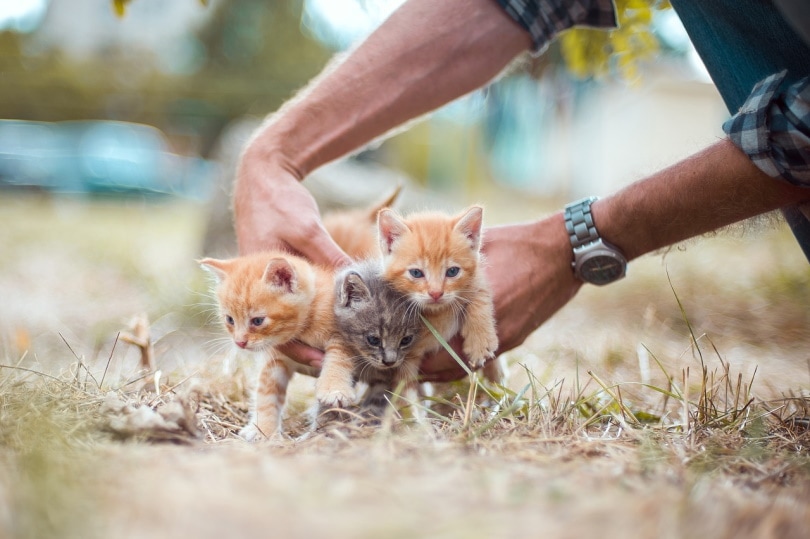
Conclusion
Kittens don’t properly take their first steps until they are 3 weeks old. They take steadier steps by 4 weeks and are running and playing at 5 weeks. It’s amazing how fast they develop in such a short time!
We hope that this has given you a better idea of the development of kittens from newborn to 6 weeks of age. Remember, try to adopt any chance that you can so you can give a kitten or an adult cat a new chance at a better life.
Read Also:
- When Do Kittens Start Pooping? What You Need To Know!
- At What Age Should Your Kitten Get Vaccinated? Everything You Should Know!
Featured Image Credit: Onishchenko Natalya, Shutterstock







